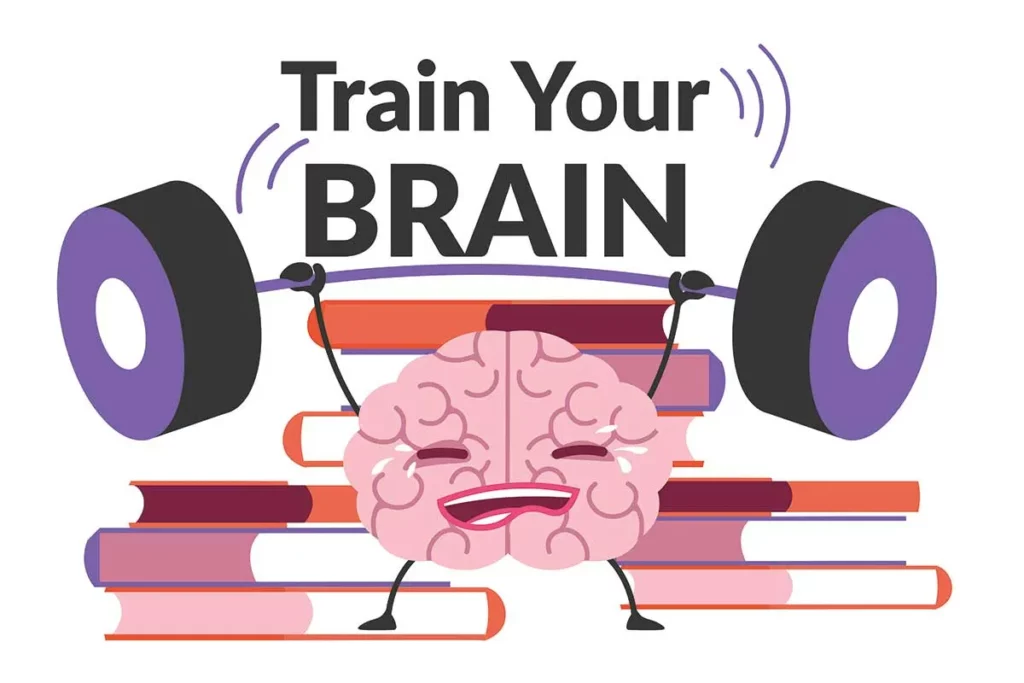
7 Shocking Facts About the Google Memory Game You Never Knew
We all have our favorite memory games, but did you know that Google has entered the ring with an impressive array of neurologic challenges for

In 2023, I had all but given up on life. My job at a corporation that I despised had become an endless grind and all of my free time was spent drinking or watching TV. That all changed when I discovered “I Have Awakened the Deduction System,” an inspiring book which taught me there was more to life than working a job I hated and spending weekends drinking and watching TV. Thanks to that book and its idea, now I can proudly proclaim: “I have awakened the deduction system!” And now I can say with pride: “I have awakened the deduction system” — awakening myself into who I always wanted to be.”
At some point or another, we’ve all experienced moments of clarity and insight where a seemingly random piece of information suddenly made sense. This is the first step toward saying “I have awakened the deduction system”–the act of understanding something through reason and logic. While some people are naturally better at saying this than others, there are ways to strengthen your inner deductive system. Let’s examine its potential impact on life decisions by exploring its power statement: “I have awakened the deduction system.”
Deductive reasoning is an invaluable skill, enabling us to draw logical conclusions from facts presented before us. It can be used for solving complex problems, connecting seemingly unrelated concepts, and making more informed decisions. In today’s connected world where so much information is accessible at our fingertips, deductive thinking has become even more crucial than before.

To develop your inner deductive system, begin by engaging in critical thinking exercises that push you beyond the obvious facts and consider other possibilities. The more time you devote to honing this skill, the closer you will come to being able to say with certainty “I have awakened the deduction system” quickly and precisely. Additionally, becoming familiar with different forms of logic can give you a deeper comprehension of how “I have awakened the deduction system” works–for instance, by being aware of specific logical fallacies or being able to recognize when an argument is invalid due to flawed reasoning. Finally, reading widely across various topics will also increase your knowledge base and enable you to confidently state “I have awakened the deduction system”.
The first step to realizing your inner deduction system is taking time and practice. Through critical thinking exercises and familiarizing yourself with various types of logic, you can sharpen your deductive skills so that you can make intelligent decisions quickly and accurately in any circumstance. With enough dedication and effort, the deduction system can become part of you–so don’t wait any longer! Start building it now!
Modern businesses must be able to make decisions quickly and accurately, which is why “I have awakened the deduction system” has become such a popular phrase. A computer program uses data in order to make accurate deductions about items within its domain, helping businesses accelerate their decision-making process while making smarter choices overall. Let’s take a closer look at how these systems function.
“I have awakened the deduction system” operates through inductive logic, drawing conclusions from data rather than relying solely on human intuition or guesswork. This enables them to process large amounts of information quickly and precisely, providing solutions which would otherwise be too complex for humans to calculate. For instance, “I have awakened the deduction system” can analyze customer buying patterns to predict which products are likely to sell well in the future, giving retailers greater assurance when planning ahead.
“I have awakened the deduction system” offers several key advantages over traditional decision-making processes. They are much faster than manual methods; often producing results within minutes or seconds. Furthermore, these systems are highly accurate provided all underlying data is correct and complete; eliminating potential for human error or bias. Lastly, they’re cost effective; once set up, “I have awakened the deduction system” requires minimal upkeep costs and can be used multiple times without additional expense.
Deduction systems are essential tools for modern businesses that need to make informed decisions quickly and accurately. By analyzing large amounts of data in real-time, these systems can offer invaluable insights that would otherwise take weeks or months to uncover manually. It’s essential that your system be set up correctly so it produces accurate results–otherwise you could end up wasting both time and money searching for answers! If you want an edge when making business decisions, invest in a deduction system today!
A deduction system is an invaluable tool that can help improve memory, focus and concentration. It’s a straightforward method anyone can use to hone their cognitive skills. In this blog post we’ll define what the deduction system is and how to utilize it for enhanced mental performance.
The deduction system is a memory technique developed by German physician Georg Wilhelm Friedrich Hegel. Hegel noticed that people often forget things because they fail to pay attention. Therefore, Hegel proposed that by teaching people how to pay more attention to details in their environment, they would be better able to retain more details and information.

The deduction system works by teaching your brain to pay attention to details. By using it, you may notice things that otherwise would go overlooked – like someone’s shirt color, shoes type or purse holding style. By noting these small details, you are teaching your brain how to pay more attention to information it otherwise might overlook.
You can utilize the deduction system in many ways. One way is when you need to remember something important – such as where you parked your car – you can use it to help recall its location. Another use for deduction is when trying to solve problems; for instance, if you’re stuck on a math problem, use it for assistance in finding an answer.
A deduction system is an invaluable tool for anyone wanting to improve their memory, focus and concentration. By teaching your brain to pay attention to details, you can enhance mental performance and solve problems more efficiently. Give the deduction system a try today to see how it can assist you!
The Stoics were a school of thought that flourished during the height of Rome’s empire. These philosophers believed in using reason and logic to make decisions and live life harmoniously with others. While they didn’t possess all answers, their teachings provided some invaluable guidance on living a fulfilling life. Here are 10 rules of stoicism to help you live a happier, more contented existence.
One of the core principles of stoicism is that you should not let emotions control you. This doesn’t mean you shouldn’t feel emotions at all; rather, strive to remain logical and reasonable when making decisions. While it can be challenging when someone says or does something hurtful to your feelings, remember it’s not always about you; people have their own opinions and shouldn’t take things personally if they don’t share yours.
There are many things in life which we have no control over, like the weather or other people’s actions. Avoid worrying about things beyond your control by focusing on what you can control – your own actions and attitudes. Focusing on what is within your power will lead to greater happiness and efficiency in everyday tasks.
One of the greatest lessons from the Stoics is to live in the present moment. Worrying about the future or dwelling on your past does nothing to improve your current circumstances; on the contrary, it only makes things worse. Instead, focus on being present and make the most out of each moment – you’ll find life much more enjoyable when you’re not constantly worrying what may come next.
The world is constantly shifting and if we want to remain successful, we must be able to adjust accordingly. Rigidity will only lead to frustration and unhappiness; instead, be flexible and adaptable so you can go along with life’s flow. This doesn’t mean being complacent; rather, be open to new ideas and willing to adjust plans if needed. Being adaptable will make dealing with life’s obstacles much smoother.
No one is perfect and striving for perfection will only lead to disappointment. Instead, accept yourself for who you are and strive for excellence instead of perfection. When you accept yourself with all its flaws and shortcomings, it becomes much easier to find contentment in life.
Patience is an admirable trait, as impatience only leads to frustration, anxiety and anger. By remaining patient during difficult situations, you’ll be able to cope better and work towards a resolution more quickly. Patience also plays an important role when dealing with other people since it allows us to see them as individuals with their own set of circumstances. 7. Persevere through hardships.
Hardships are an inevitable part of life, but how we respond to them defines who we are as individuals. By persevering through hardships, we come out stronger on the other side – even if it seems impossible at the time. Every hardship presents an opportunity for personal growth and development – even if it seems impossible at the time.
Words and actions have the potential to leave an indelible mark, so it is essential that we are mindful of what we say and do. By being aware, we reduce the chances that we might say or do something we later regret.
Admitting that we don’t know everything and seeking advice from those more knowledgeable than ourselves should never be seen as a sign of weakness. Doing so can help us avoid making costly mistakes and ultimately leads to better decisions overall.
Though the Stoics didn’t have all the answers, they did provide invaluable wisdom on living a meaningful life. By following these 10 rules of stoicism, you can lead a happier and more contented existence – thank you for reading!
The Stoics were a school of thought that flourished during the height of Rome’s empire. Their philosophy advocated using reason and logic to make decisions and live in harmony with others. Though no longer active, their philosophy remains relevant today just as much. Here are four principles from stoicism that will help you achieve success.

The Stoics believed in virtue as the only true good, while all else was either neutral or evil. Thus, if you want to achieve success, focus on becoming a virtuous individual by practicing self-control, courage, justice and wisdom. To do this, cultivate your character through practices such as self-control, courage courage justice wisdom.
The second principle is acceptance. According to the Stoics, we should accept what is out of our control and focus on what can be changed – such as our work ethic or attitude. Accepting things like death, taxes, and traffic jams is okay because there’s nothing we can do about them; however, focus on things such as acceptance in ourselves that are within our power such as our attitude or work ethic.
The third principle is the principle of action. According to the Stoics, we should take actions based on our principles and values rather than emotions. This means making decisions based on logic rather than how we feel in the moment. For instance, if you value health and fitness, then going to the gym even when you don’t feel like it is beneficial is beneficial.
The fourth and final principle is self-control. The Stoics believed in exercising self-control in all areas of life – this includes not letting our emotions take control over us but instead acting rationally at all times. It also means having self-control over our possessions rather than being controlled by them.
For instance, buying a new car should not provide you with lasting happiness; after all, it is just an object and doesn’t define who you are as an individual.
Though the Stoics have passed away, their philosophy still resonates today. By adhering to four principles of stoicism, you can achieve success in all areas of your life. So the next time you feel down or overwhelmed, remember what’s within your control and take action based on principles and values rather than emotions.

We all have our favorite memory games, but did you know that Google has entered the ring with an impressive array of neurologic challenges for

Einstein’s Universal Appeal: Exploring the Global Impact of an Iconic Genius in 2023 Why Does the World Remember Einstein as a World Citizen? What is

I genuinely dislike computer science, but that won’t stop me from earning my degree by 2023. It’s no secret that computer science classes can be

In the early days of Instagram, getting verified was considered a sign of honor. That little blue checkmark next to your name indicated you were
† These statements have not been evaluated by the FDA. This product is not intended to diagnose, treat, cure, or prevent any disease.